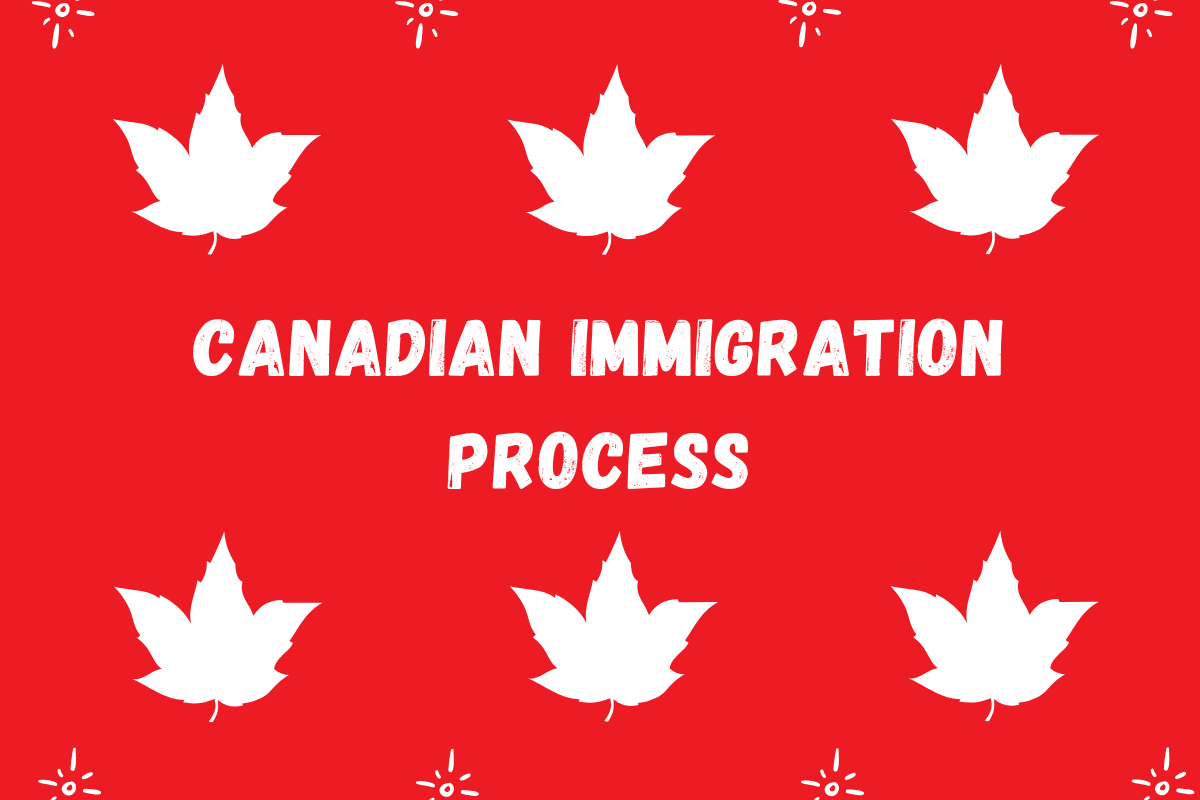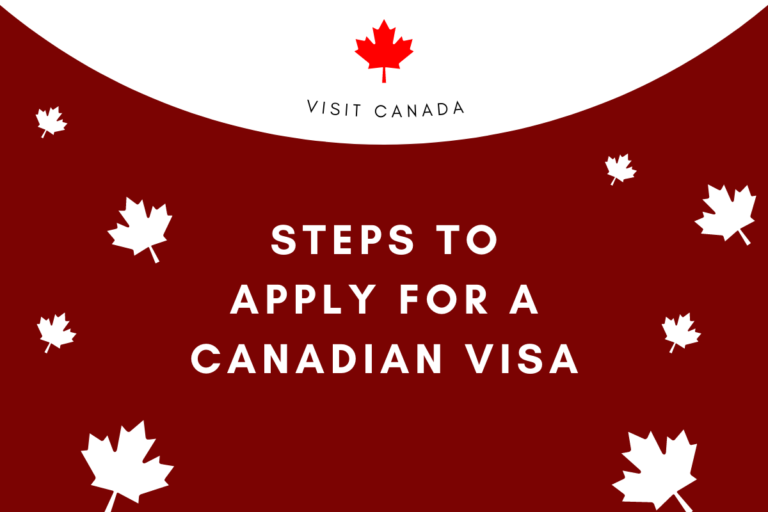Key Steps in The Canadian Immigration Process
The Canada immigration process typically involves the following steps:
- Select an immigration program: Choose a program that best aligns with your qualifications and goals, such as Express Entry, the Provincial Nominee Program, or the Quebec Skilled Worker Program.
- Determine eligibility: Review the eligibility criteria for the program you have selected to ensure that you meet the requirements.
- Submit an application: Complete and submit the required application forms and pay the necessary fees.
- Provide supporting documents: Provide all the necessary supporting documents, such as a valid passport, proof of language proficiency, and educational and professional qualifications.
- Attend a medical examination and interview (if required): Some applicants may be required to attend a medical examination and/or an interview as part of the application process.
- Wait for a decision: After submitting your application, you will need to wait for a decision to be made on your application. The processing time varies depending on the program and the volume of applications received.
- Get your visa: If your application is approved, you will receive your visa and instructions on how to proceed with your move to Canada.
Note: The process may vary depending on the program you have selected and the specific details of your application. It is best to consult the Government of Canada’s immigration website for detailed information and instructions.
1- Select an immigration program
Selecting an immigration program is an important first step in the Canada immigration process. The Government of Canada offers several immigration programs, each with its own set of eligibility criteria and application requirements. Here are a few of the main immigration programs available:
- Express Entry: This program is designed for skilled workers who wish to immigrate to Canada permanently. It uses a points-based system to assess candidates’ qualifications and ranks them in a pool of applicants.
- Provincial Nominee Program (PNP): Each province and territory in Canada has its own PNP, which allows them to nominate individuals for immigration based on their ability to meet specific labor market needs.
- Quebec Skilled Worker Program (QSWP): This program is specific to the province of Quebec and is designed for skilled workers who wish to settle in Quebec permanently.
- Canada Experience Class (CEC): This program is for people who have Canadian work experience and wish to apply for permanent residency.
- Family sponsorship: This program allows Canadian citizens and permanent residents to sponsor certain family members to immigrate to Canada.
It is important to carefully review the eligibility criteria and application requirements for each program before making a decision. It is also a good idea to consult with a qualified immigration lawyer or consultant to help you determine which program is best for you.
2- Determine eligibility
Determining eligibility is an important step in the Canada immigration process. Each immigration program has its own set of eligibility criteria that must be met in order to be considered for immigration. Some of the common factors that are considered when determining eligibility include:
- Age: Some programs have age requirements, such as the age range to apply for Express Entry program.
- Language proficiency: Most programs require that applicants demonstrate a certain level of language proficiency in either English or French, usually by taking a language test such as IELTS or TEF.
- Education: Most programs require that applicants have a certain level of education, such as a high school diploma or a post-secondary degree.
- Work experience: Many programs require that applicants have a certain amount of work experience in a specific field or occupation.
- Income and assets: Some programs may require applicants to have a certain level of income or assets in order to be considered.
- Health and character requirements: All applicants must meet certain health and character requirements in order to be eligible for immigration to Canada.
It’s important to review the specific requirements of the program you have selected in order to determine your eligibility. As well as consulting with a qualified immigration lawyer or consultant can help you to understand the requirements and to see if you are eligible.
3- Submit an application
Submitting an application is the next step in the Canada immigration process after determining your eligibility. The application process will vary depending on the immigration program you have selected, but generally it will include the following steps:
- Complete the application forms: You will need to complete all the required application forms and provide accurate and honest information.
- Pay the application fees: You will be required to pay the necessary application fees in order to submit your application.
- Provide supporting documents: You will need to provide all the necessary supporting documents, such as a valid passport, proof of language proficiency, and educational and professional qualifications.
- Submit the application: Once you have completed the forms, paid the fees, and gathered all the necessary documents, you can submit your application.
- Wait for a decision: After submitting your application, you will need to wait for a decision to be made on your application. The processing time varies depending on the program and the volume of applications received.
It is important to ensure that your application is complete and accurate, and that all necessary documents are included. Failure to provide accurate information or missing documents can delay the processing of your application or result in it being denied. It’s also important to keep track of the deadlines and follow-up on your application status.
4- Provide supporting documents
Providing supporting documents is an important step in the Canada immigration process, as they are used to verify the information provided in the application forms and to assess the applicant’s qualifications and suitability for immigration. The specific documents required will depend on the immigration program you have selected, but some common documents that may be required include:
- Passport or travel document: All applicants must provide a valid passport or travel document as part of their application.
- Language test results: Most programs require that applicants demonstrate a certain level of language proficiency in either English or French, usually by taking a language test such as IELTS or TEF and submitting the results.
- Educational and professional qualifications: Most programs require that applicants have a certain level of education, such as a high school diploma or a post-secondary degree. You will need to provide proof of your education and professional qualifications, such as degrees, diplomas, and certificates.
- Work experience: Many programs require that applicants have a certain amount of work experience in a specific field or occupation. You will need to provide proof of your work experience, such as letters of reference from past employers or copies of your employment contracts.
- Income and assets: Some programs may require applicants to have a certain level of income or assets in order to be considered. You will need to provide proof of your income and assets, such as pay stubs, bank statements, and property deeds.
- Police clearance certificate: All applicants are required to provide a police clearance certificate, which is a document that shows that the applicant has no criminal record.
- Medical examination: Some applicants may be required to undergo a medical examination as part of the application process.
It’s important to provide all the documents required, translated in English or French if they are in another language, and to make sure that all the documents are legible and easy to understand. Failure to provide all the necessary documents can delay the processing of your application or result in it being denied.
5- Attend a medical examination and interview
Attending a medical examination and interview (if required) is an important step in the Canada immigration process. Some applicants may be required to undergo a medical examination and/or an interview as part of the application process.
- Medical examination: All applicants are required to pass a medical examination as a condition of their application. The examination will be conducted by a designated medical practitioner (DMP) who will assess the applicant’s overall health and look for any medical condition that may pose a risk to public health or safety, or that may place an excessive demand on Canada’s health or social services.
- Interview: Some applicants may be required to attend an interview as part of the application process. The interview will be conducted by an immigration officer who will assess the applicant’s qualifications and suitability for immigration. The officer will also verify the information provided in the application forms and supporting documents.
It’s important to follow the instructions provided by the immigration authorities in order to schedule the medical examination and/or the interview. It’s also important to bring all the necessary documents to the medical examination and/or the interview and to answer the questions honestly. Failure to attend the medical examination and/or the interview, or to provide accurate information during the interview, can delay the
6- Wait for a decision
Waiting for a decision is the final step in the Canada immigration process after submitting your application and providing all the necessary supporting documents, including attending a medical examination and an interview if required. The processing time for an application varies depending on the program and the volume of applications received.
The immigration authorities will review your application and supporting documents to determine if you meet the eligibility criteria for the program you have selected and if you are suitable for immigration to Canada. They will also consider any medical or security issues that may affect your application.
You will be notified of the decision on your application by mail or email. If your application is approved, you will receive instructions on how to proceed with the next steps, such as obtaining a permanent resident visa or obtaining a work permit or study permit. If your application is denied, you will be provided with the reason for the decision and information on how to appeal the decision or how to submit a new application.
It is important to be patient during this step and not to contact the immigration authorities unless it is necessary. It’s also important to keep track of the deadlines and follow-up on your application status.
7- Get your visa
Getting your visa is the final step in the Canada immigration process after your application has been approved. A visa is a document that is placed in your passport that allows you to enter Canada as a permanent resident or as a temporary resident (work permit or study permit holder).
- Permanent resident visa: If you have applied for permanent residence, you will be required to obtain a permanent resident visa before you can travel to Canada. You will need to provide your passport and other required documents and pay the necessary fees. After your visa is issued, you will have to travel to Canada within a certain period of time, usually within a year.
- Temporary Resident Visa: If you have applied for a temporary resident visa such as work permit or study permit, you will be required to obtain a temporary resident visa before you can travel to Canada. You will need to provide your passport and other required documents and pay the necessary fees. After your visa is issued, you will have to travel to Canada within a certain period of time, usually within a year.
It’s important to ensure that your visa is valid for the entire duration of your stay in Canada, and that you have all the necessary documents to enter the country. It’s also important to check the expiry date of your passport, as it must be valid for at least six months beyond the date you plan to leave Canada.
Once you have obtained your visa and entered Canada, you will be required to meet certain conditions to maintain your status as a permanent resident or temporary resident.




